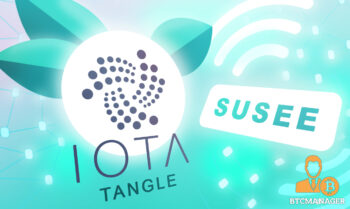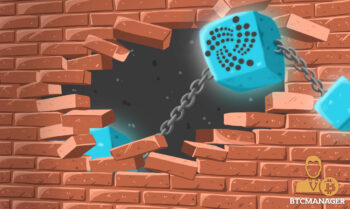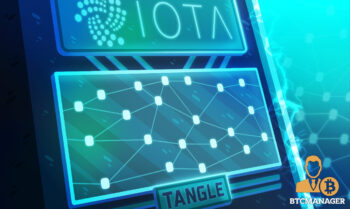
2019-5-29 10:03 |
IOTA (Internet of Things Application) continues to make strides in the IoT (Internet of Things) field. This time around, it has a slightly new development happening on the background; the Qubic Project.
While it may be slightly different from how we know IOTA, it’s a massive milestone in IOTA’s quest to interconnect devices on IoT.
As IOTA News puts it in a tweet:
“Qubic enables a way to communicate with the outside world; a powerful, distributed fog computing platform for building complex IoT applications; a new type of smart contracts, which collects micro-payments; a reward system for incentivizing honest participation in the Tangle.”
#Qubic enables: A way to communicate with the outside world; A powerful, distributed fog computing platform for building complex #IoT applications; A new type of #smartcontracts, which collects micro-payments; A reward system for incentivizing honest participation in the #Tangle. pic.twitter.com/mFI0nn8NoF
— IOTA News (@iotatokennews) May 27, 2019Before we dissect the Qubic project, let’s get one thing out of the way; the Tangle. Although IOTA uses the decentralized ledger technology, it doesn’t use the blockchain as with other decentralized systems. Instead, it uses a Directed Acyclic Graph (DAG) which IOTA calls the Tangle.
With the Tangle, a consensus is reached by verifying two previous transactions forming an interconnection of transactions where a new transaction is attached to two previous transactions.
Now onto QubicQubic is out to revolutionize, among other things, the smart contracts and Oracles. At the heart of this quest is a concept known as outsourced computation. Outsourcing computations see devices that do not have the power to handle transaction outsource the task to cloud-based servers.
Unfortunately, outsourcing computations fail to cover data privacy concerns comprehensively. To cater for data privacy and security when outsourcing computations to the cloud, various approaches have been employed.
For example,
Fog and Mist ComputingCisco came up with fog computing to bring cloud computing to the edge of an enterprise network. Unlike cloud computing, fog computing brought outsourced computation closer to the end users.
Mist computing was added into fog computing nodes. The differentiating aspect being that mist computing provided a lightweight form of computing plus the capability to connect with cloud computing platforms directly. According to Markus, a member of the public IOTA project,
“The Mist consists of the edge, that is, the very edge: the sensor and actuator controllers. Extending computing all the way to the edge can make a lot of sense depending on the network topology…Mist computing is the result of everything computing everywhere.”
Qubic takes Fog and Mist as inputs to produce a superior system that breaks beyond the advantages of both fog computing and Mist computing. This makes Qubic fit seamlessly into IOTA’s framework.
For instance, to create a robust system, Qubic understand that there is no single device, especially those connected on the IoT, that will ever be fully self-sufficient; they will always need to outsource a section of their computations.
To overcome the privacy issues inherent in other computation outsourcing methods, Qubic allows computations to be outsourced securely, thereby facilitating a permissionless interaction between consumers and producers.
That’s not all, Qubic is FlexibleQubic enables anyone to either create or run a task, whether on single or multiple external machines. The results of the computation are relayed back to the one who requested to run them. Additionally, Qubic has a pool of unprocessed computation requests which anyone can find and process them on behalf of the requester.
The Qubic Protocol can be seen as adding a layer of reliability to oracle machines which have already implemented a decentralized and secure way to process outsourced computations. Therefore, throwing Qubic into the mix prepares IOTA for the future.
The post A Dive into IOTA’s Qubic, What You Should Know appeared first on Ethereum World News.
origin »Bitcoin price in Telegram @btc_price_every_hour
Advanced Internet Blocks (AIB) на Currencies.ru
|
|





